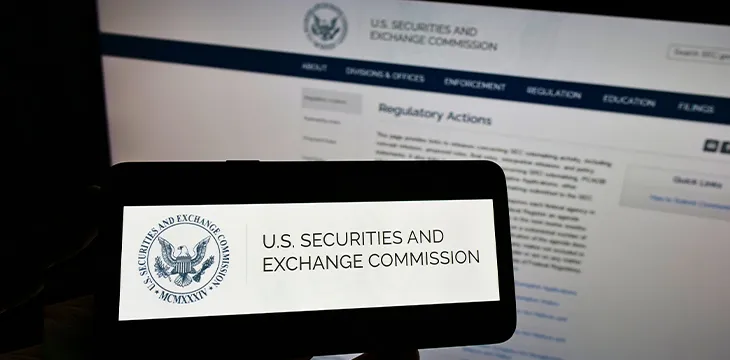|
Getting your Trinity Audio player ready...
|
If 2021 in the digital currency space could be defined by anything, it would be the widespread crackdown by regulators worldwide and the warnings of much more to come.
If you’re a regular CoinGeek reader, you’ll know that we’ve covered many such stories in the past year. From Ukraine to the United States and European Union, governments have been busy drafting laws to bring the digital currency and blockchain industries into line.
Here are a few stories from 2021:
- Securities and Exchange Commission (SEC) Chairman Gary Gensler warned that the Wild West era is over.
- The European Union moved to ban anonymous digital currency transactions.
- Countries from Ukraine to China either brought in regulations or outright banned digital currencies and BTC miners.
It’s clear that things are changing. While experiments like the Lightning Network make it even more difficult to track and trace transactions and thus comply with regulations, forward-thinking developers are moving in droves to legally compliant blockchains like BSV.
More signs of regulatory crackdown as Gensler hires digital currency specialist
One of the biggest stories of 2021 was when SEC Chairman Gary Gensler took direct aim at the criminality in the digital currency industry by vowing a widespread crackdown. Recently, we got more signs of this as he hired a specialist who will be in charge of “policymaking and interagency work relating to the oversight of crypto assets.”
The advisor he hired is named Corey Frayer. After advising Congress for over a decade, Frayer worked as a senior staffer on the Senate Banking Committee. This work brought him into close contact with Sen. Sherrod Brown.
Those who follow these developments closely will already know that Sen. Brown recently sent a strongly worded letter to Tether, Circle, and other stablecoin issuers about a month ago. The letter requested information that, if provided, would leave Tether with nowhere to hide, suggesting the Senator is wise to the offshore firm’s shenanigans and knows what questions to ask so that Tether shows its hand.
Corey Frayer spent a decade working as an advisor to members of #Congress before serving as a senior staffer on the 🇺🇸 Senate Banking Committee for Sen. Sherrod Brown (D-Ohio). FYI: Sen. Brown sent the request for information letters to #Tether, #Circle, etc. last month. (2/4) pic.twitter.com/Q26zYFMhtH
— WallStreetPro (@wallstreetpro) December 30, 2021
Sen. Brown has not been warm towards the digital currency space in general. He recently called it a “shady diffuse network of online funny money.” While BTC maxis and other fanatics dismissed it as FUD by an out-of-touch boomer at the time, it’s not so easy to overlook the senator’s concerns when you take an objective look at the industry in its current state. It’s a catalog of carnage with hacks, heists, and scams occurring everywhere you look.
This appointment makes it clear that Gensler is aiming to take things up a notch in 2022. Could this be the year when Tether is finally exposed? Time will tell, but if it’s regulated as a bank or anything close to it, the truth will have to come out one way or another.
2022 is the year everything changes
Legendary investor Ray Dalio once said, “he who lives by the crystal ball will be forced to eat glass.” However, I feel confident in predicting that 2022 will be the year when everything changes for the better in the digital currency space. What do I mean by that? I mean that the U.S. will finally bring in proper regulations, and they will have a seismic impact across the industry.
As America goes, most of the world follows, since the U.S. controls the world financial system. If Uncle Sam wants Tether gone or wants stablecoin issuers to be regulated as banks, you can bet your bottom dollar it will happen in most countries that want to stay on the right side of him. And if he wants anonymous transactions banned, you can also wager that hosted wallet providers, transaction processors (aka miners), and others will comply worldwide.
I won’t attempt to predict the exact consequences of all of this, but if Tether goes down, 70% of the volume in the industry will cease overnight. It’s difficult to say what that will mean for prices of tokens like BTC and ETH, but what can be said for sure is that it will lead to a stronger, better, and more legitimate industry where players who did things right from day one will finally have a chance to shine.
Watch: SEC Commissioner Hester Peirce on Bitcoin Association’s Blockchain Policy Matters

 09-08-2025
09-08-2025 





